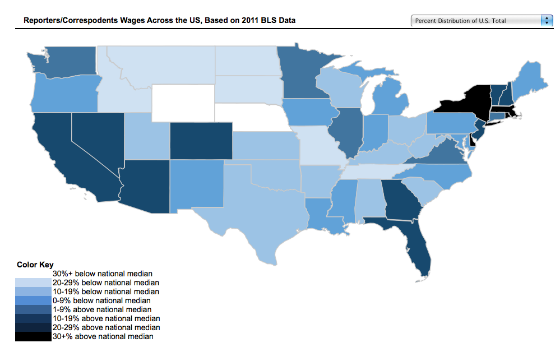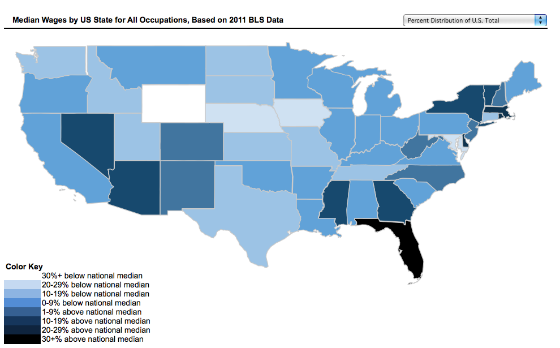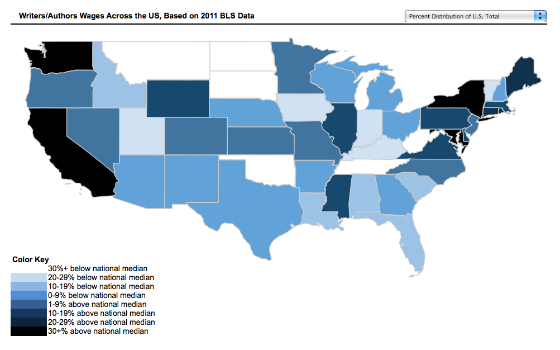UPDATE: This piece was updated to reflect the fact that BLS’ data is based on median, not average, wages.
This week’s news that the median net worth for American families had fallen to the same level as the early 1990’s got us thinking about how journalists and writers are faring in this economy. We examined state by state data from the Bureau of Labor Statistics on median wages for writers/authors and reporters

 /correspondents (a somewhat murky distinction, since those titles are self-reported).
/correspondents (a somewhat murky distinction, since those titles are self-reported).
Here’s how journalist wages compare to the national median ($49,192) for writers/authors by state:
Given the higher cost of living on the coasts, it’s not surprising to see higher-than-average wages in those areas.
But when we look at nationwide median wages ($33,636) for reporters/correspondents, the picture shifts a bit:
Still higher pay in the Northeast, but pay rates on the West Coast are only slightly higher than the national median for reporters/correspondents. Given the higher cost of living, a journalist might be better off moving to Georgia (12% higher than the median) or Colorado (11% higher) from California (only 15% above the national median for reporters). Also attractive for journalists: Alaska (14% higher) and Arizona (17% higher).
We also looked up state by state data, comparing what reporters make with the overall figures for workers in their state:
Florida reporters make 36% more than the median Floridian. That’s followed by Rhode Island (25%), Massachusetts (23%), Delaware (22%) and Georgia (19%). Puerto Rico, not pictured on the map, is actually tops with reporters making 54% more than the median wage.
Where do journalists get the short end of the stick? Wyoming, for one, where they make 34% less than the median state wage. Nebraska (-27%), Maryland (-24%), Iowa (-22%) and North Dakota (-17%) round out the bottom of the list.
Why the discrepancies? Your guesses are as good as ours: the financial strength of local media, shortage or glut of qualified reporters, cultural values about the importance of journalism. All seem like candidates.








